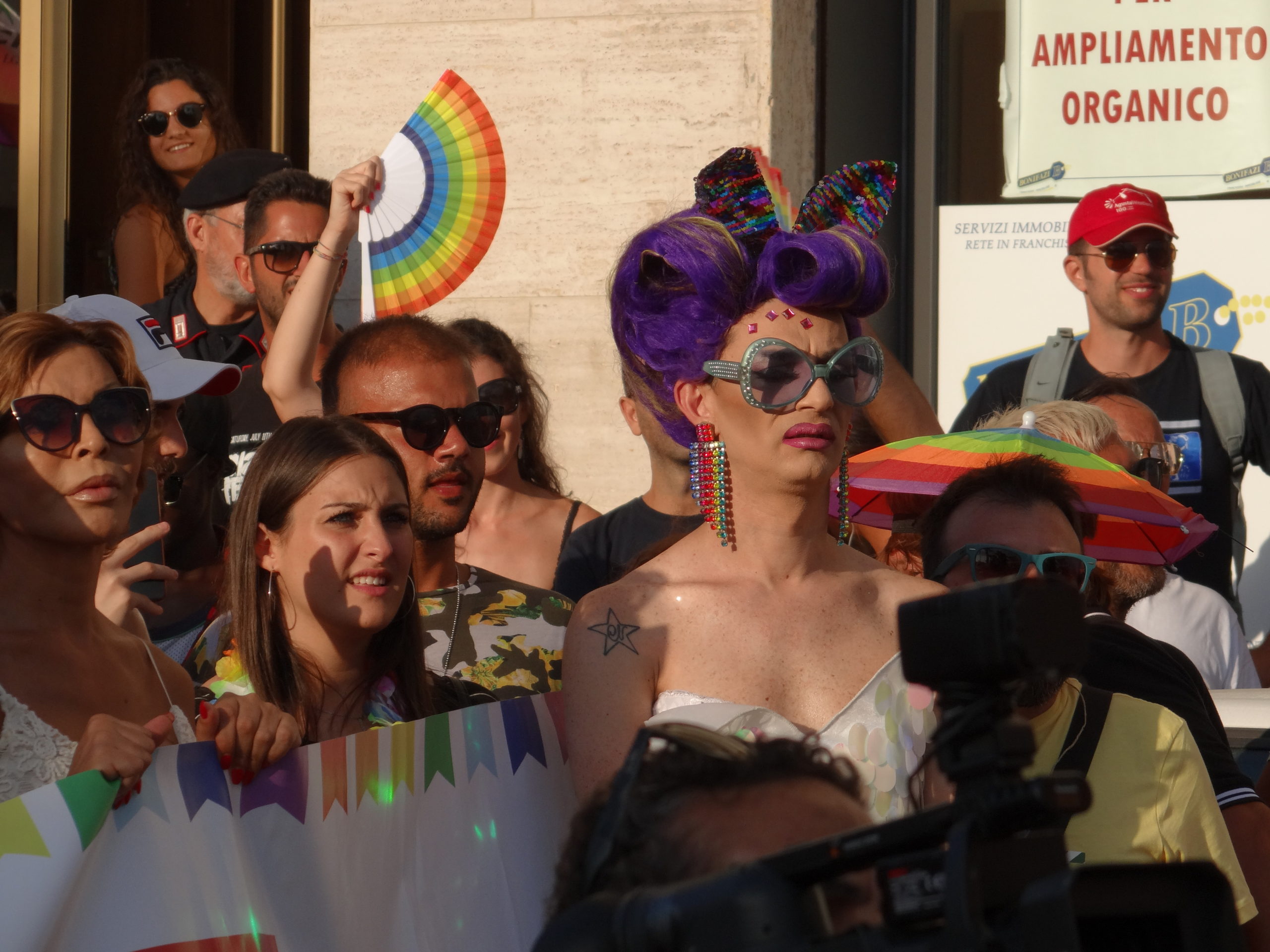The 2019 edition of the OECD’s (Organisation for Economic Co-operation and Development) Society at a Glance survey examines trends in social well-being across the OECD.
It features a special chapter on lesbian, gay, bisexual and transgender (LGBT) people: their numbers, how they fare in terms of their economic situation and well-being, and what policies can improve LGBT inclusivity.
In summary it finds:
- In a 2011 survey 1.6% of people in Italy identified as LGB. Italy does not yet collect information on the share of transgender people among the adult population.

- Italy performs worse than the OECD average regarding acceptance of homosexuality: Italian citizens score nearly three on a 1- to-10 acceptance scale, two points below the average OECD score.
- Only a minority of Italian respondents (37%) would feel comfortable having a transgender or transsexual person in the highest elected political position, as a work colleague, or as a daughter or son-in-law.
- With the same curriculum vitae, homosexual Italian applicants are about 30% less likely to be invited to a job interview than heterosexual Italian applicants.
Reporting on the fact that same-sex marriage is still not legal in Italy, the survey notes that same-sex marriage policies caused a reduction (in the US for example by nearly 15%) of suicide attempts among adolescents who self-identify as gay, lesbian or bisexual.
